ISLAMIC NEO-TRADITIONALISM: FAITHFUL REVIVAL OR STRATEGIC REARTICULATION?
The term “neo-traditionalism” refers to a loose trend in contemporary Islamic thought. It emphasises reviving classical scholarship and methodologies while adapting them to modern contexts in order to address the challenges of modernity. Unlike traditionalism—which often follows inherited rules, assumptions, and institutional authority without relying much on systematic methods or analytical frameworks—neo-traditionalism seeks to revive and rehabilitate the intellectual and spiritual practices of the past and ensure their relevance today.
Importantly, it is not a single school or organisation. Rather, it is a network of scholars, teachers, and students who share similar methods, ideals, and educational practices, creating an internally linked social infrastructure for today’s Muslim society. Yet a question remains: How can implementing neo-traditionalism within existing educational and religious structures revive classical knowledge instead of allowing modernity to weaken it?
Neo-traditionalists argue that modern Muslim communities face confusion and moral disruption because of a severe disconnection from classical learning. Their response is to restore traditional knowledge through rigorous study of the core Islamic sciences—Arabic grammar, fiqh, ḥadīth, theology, and Sufism. This is pursued through study circles, ḥalaqas, and one-on-one mentorship with qualified scholars, integrating intellectual training with moral and spiritual guidance.
This revival is both academic and practical. It provides ethical direction, spiritual refinement, and intellectual grounding. Neo-traditionalists see this revival as essential for authentic and stable Islamic practice in the modern world, where tradition is often dismissed as decayed or outdated. Its continued study and spiritual discipline are therefore not acts of nostalgia but a vital foundation for ethical clarity and communal belonging.
Emphasis on Tradition and Human Transmission
In this approach, knowledge is not authenticated merely through texts but also through direct human transmission. A scholar’s authority is tied to their lineage of teachers and mentors, making learning a relational and intimate process. This ensures that intellectual knowledge is never detached from moral and spiritual formation, turning it into an active, grounded practice rather than a purely theoretical pursuit.
Spiritual Depth in Neo-Traditionalist Thought
Sufism holds immense significance within neo-traditionalism, emphasising inner purification, ethics, and a direct, experiential awareness of God. Neo-traditionalist thinkers argue that classical scholarship, when separated from spiritual development, becomes dry and dependent only on abstract concepts. To integrate modern education with living spiritual practice, neo-traditionalists promote study circles (ḥalaqas), discussions, reflective engagements, and spiritual gatherings where learning and spiritual growth coexist.
Key Figures
Among the notable figures in Islamic neo-traditionalism is Hamza Yusuf, the American co-founder of Zaytuna College. Through influential works such as Purification of the Heart and numerous lectures, he presents classical Islamic scholarship in a way that resonates with modern readers and students.
Alongside him, another prominent figure is Abdal Hakim Murad of the United Kingdom, an erudite scholar whose writings and teachings emphasise ethics, theology, and spirituality. His work promotes inner purification while addressing the complexities of modern life. Together, their scholarship demonstrates how neo-traditionalism blends rigorous classical learning with spiritual guidance, offering a compelling voice to a wider global Muslim audience.
Platforms such as New Age Islam and similar online forums also play a significant role in presenting neo-traditionalist ideas to contemporary audiences. They bridge classical scholarship with digital media, emphasising spirituality, ethics, and intellectual renewal in accessible language. Through articles, podcasts, and online discussions, these outlets bring traditional insights into conversations on modern life, identity, and morality. In doing so, they show how neo-traditionalism remains faithful to its roots while engaging dynamically with the contemporary world.
Neo-Traditionalism in the Western Context
Neo-traditionalism has found some of its strongest expression in the Western Muslim experience, particularly in North America and the United Kingdom. It emerged as a response to the moral and cultural uncertainties faced by Western Muslims living in plural societies shaped by post-modern values. Institutions such as Zaytuna College in California and Cambridge Muslim College in the United Kingdom stand at the heart of this revival. They seek to reconnect modern Muslim communities with the depth of classical learning while engaging the intellectual and social realities of the West. In this context, neo-traditionalism functions not only as a spiritual movement but also as a search for authenticity, enabling Muslims to remain rooted in their faith while navigating modern life.
A Fair Comparison Between Traditionalism and Neo-Traditionalism
As noted in The Study of Islamic Traditionalism (Cambridge Muslim College, 2018), traditionalism relies on inherited rules and long-established institutional authority. Its strength lies in continuity and the steady preservation of the faith, yet it can become rigid and slow to address emerging social or intellectual challenges.
Meanwhile, neo-traditionalism—described in New Age Islam (2022)—seeks to reconstruct classical practices for modern contexts while remaining firmly rooted in core Islamic beliefs. It offers flexibility and contemporary relevance, though its reliance on prominent scholars and informal networks may at times lead to uneven quality in scholarship.
Contemporary Reflections and Critique
Neo-traditionalists often respond to complex aspects of contemporary life, such as rapidly shifting moral values, excessive individualism that weakens community bonds, and a growing dependence on technology and materialistic views of modernity. At the same time, they strategically use modern tools to spread classical Islamic knowledge and engage wider global audiences through online courses, social media, lectures, podcasts, blogs, and digital libraries.
The central challenge is maintaining loyalty to traditional teachings while engaging with the contemporary world. This includes upholding classical religious authority while making use of modern platforms and addressing social and political issues in ways that stay true to core Islamic principles.
Neo-traditionalism flourishes through flexible and informal networks—prominent scholars, small study circles, local institutes, online lectures, and global mentoring programs. Unlike formal universities, these networks allow knowledge to spread quickly and create opportunities for students and young writers to learn and contribute.
Recent scholarship has highlighted both the strengths and limitations of this approach. Dr Walaa Quisay, in her book Neo-Traditionalism in Islam in the West: Orthodoxy, Spirituality, and Politics (Edinburgh University Press, 2023), argues that Western neo-traditionalism often promotes an “ethics of respectability” that emphasises moral refinement and stability but tends to avoid direct political critique.
However, leading figures such as Hamza Yusuf and Abdal Hakim Murad present this differently. They view moral and spiritual renewal as the necessary foundation for any meaningful reform. For them, rebuilding inner strength and ethical integrity must precede political engagement. In this sense, neo-traditionalism’s cautious stance is not a withdrawal but an effort to ensure that faith remains grounded in humility, intellect, and spirituality.
Aims, Advantages, and Drawbacks of the Movement
Like any intellectual movement, Islamic neo-traditionalism has both strengths and limitations. It revives serious scholarship and spirituality, offers ethical guidance for modern life, and uses flexible networks to reach a wider audience. These strengths make it more accessible to students and youth seeking authentic learning.
However, its overreliance on well-known scholars and informal networks may sometimes lead to uneven quality in teaching. Its cautious approach to politics may also leave certain social challenges insufficiently addressed in public discourse. Despite these concerns, neo-traditionalism remains influential in shaping the moral, spiritual, and intellectual development of contemporary Muslim communities, creating space for academic and philosophical discussions.
Learning and Contribution in Neo-Traditionalism
For students and emerging writers, Islamic neo-traditionalism provides meaningful opportunities to engage with classical scholarship. Young learners can join study circles, discussions, or online mentorship programs to strengthen their understanding. They can enrich their studies through reflective conversations, sharing ideas, and receiving guidance. Engaging with scholars through lectures and conferences helps develop critical thinking and contributes to keeping classical learning relevant today.
Neo-traditionalism represents a contemporary effort to make classical Islamic scholarship both relevant and accessible. By integrating precise learning, spiritual cultivation, and flexible mentoring networks, the movement guides communities ethically, morally, and intellectually. It offers students and young writers a rich space for exploration, reflection, and contribution. Engaging with neo-traditionalism enables modern Muslims to connect deeply with classical teachings while addressing contemporary challenges, ensuring that the faith remains rooted, thoughtful, and practically meaningful in today’s world.
About the author:
Hisham P. Madayi, Degree scholar in the Department of Fiqh and Uṣūl al-Fiqh, Darul Huda Islamic University (DHIU), Chemmad, Malappuram.
References
- Jonathan Brown, Misquoting Muhammad: The Challenge and Choices of Interpreting the Prophet’s Legacy.
- Hamza Yusuf, Purification of the Heart: Signs, Symptoms and Cures of the Spiritual Diseases of the Heart.
- Abdal Hakim Murad (Timothy Winter), “Islamic Spirituality and the Modern World,” Cambridge Muslim College Lecture Series,
- Yahya Birt, “Neo-Traditionalism and Its Discontents,” The Muslim World.
- Nathan J. Brown and Amr Hamzawy, Between Religion and Politics (Washington, DC: Carnegie Endowment for International Peace, 2010).
- Walaa Quisay, Neo-Traditionalism in Islam in the West: Orthodoxy, Spirituality and Politics (Edinburgh: Edinburgh University Press, 2023)
- “Islamic Neo-Traditionalism: The Faithful Revival in an Age of Confusion,” New Age Islam, 2022.
Disclaimer
The views expressed in this article are the author’s own and do not necessarily mirror Islamonweb’s editorial stance.

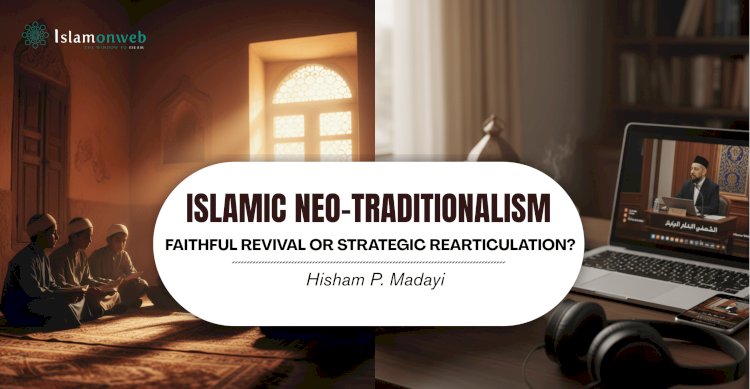



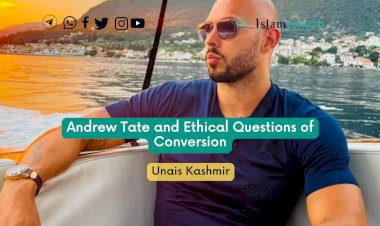
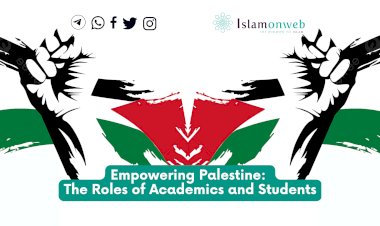
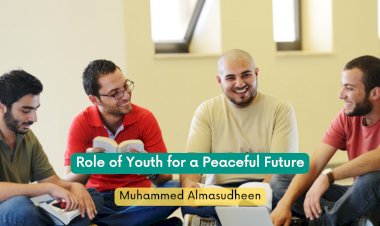
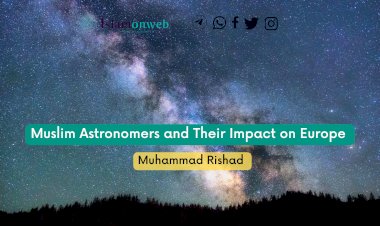

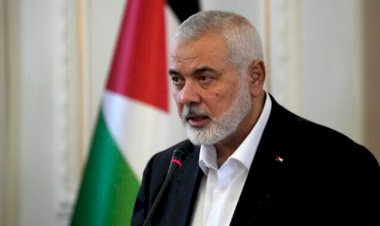














Leave A Comment